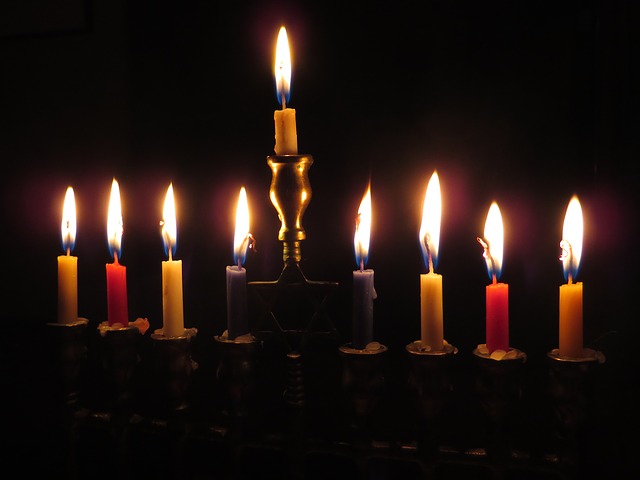
Chanukah – the Holiday of Lights
Chanukah is the Jewish holiday of candles that are lit in honor of the miracle that occurred after the victory of Judah Maccabee army over the forces of King Antioch in 164 BC.
The holiday begins on the 25th of the Hebrew month of Kislev and lasts for eight days.
In 332 BC, Judea willingly came under the rule of Alexander the Great, who followed the policy of non-interference in the religious life of the Jews. After Alexander’s death in 323 BC and many wars among his successors, the Egyptian Ptolemaic dynasty came to power and the subsequent century has passed in a state of relative stability. In 198 BC, The Ptolemies were defeated by the Seleucids (Assyrian Greeks), and Judea had fallen into their hands. At first, the general situation seemed unchanged and even improved somewhat. The Jews received written guarantees confirming their right to live “according to the laws of their fathers,” and the tax burden was somewhat reduced. But then the Seleucids began to attempt to Hellenize the Jews. Greek philosophy and culture gradually began to penetrate in the Jewish community. In 175 BC, Antiochus Epiphanes came to power, when the Hellenization of non-Greek population has acquired a particularly harsh form. The Torah was the forbidden book, observance of Jewish laws – a serious crime. Antiochus gave his name to Jerusalem, the temple treasures were confiscated, and he plundered the Temple. As a response a rebellion led by the family of the Maccabees has started. Compared with the army of Antiochus, the rebel army was small, poorly armed and not prepared. Knowing it, Judah Maccabee led the army, avoiding open battles, not allowing the enemy to take advantage of the numerical advantage. Attacking the individual units of the Greeks, the rebel army gained one victory after another. During three years they ousted the invaders from the country and liberated Jerusalem, proving thereby that the high purpose and fortitude are often crucial.
The legend tells that climbing to the Temple Mount, the Jews found in the Temple oil for their lamps, enough to keep the fire just for one day. However, the miraculous fire in the golden menorah burned for eight days, during which new reserves of oil were prepared. Thus the Temple was re-consecrated. In memory of this event, each evening during the Chanukah holiday, we light the Chanukkiah: one candle – on the first day of the festival, two – on the second day, three – on the third day and so on, up to eight. The Chanukkiah has 9 candlesticks – one is used to light the other 8 candles with.
The Jewish proverb says: “A little bit of light is enough to dispel the great darkness.”
There’s a tradition to give gifts and money to children on Chanukah. Playing Chanukkah’s toy called a dreidel also reminds us about those great events in Jewish history. On each of the four sides of a whirligig is written the initials of a phrase “Great Miracle Happened Here” נ ג ה פ(for celebrating in Israel). Or “Great Miracle Happened There” נ ג ה ש(in the Diaspora, outside Israel).
Because the oil played such an important role in the Hanukkah story, it is a Jewish tradition to eat dishes that were cooked with lots of oil.
Most famous Chanukah dishes are potato latkes (potato pancakes) and sufganiyot (deep-fried doughnuts).






